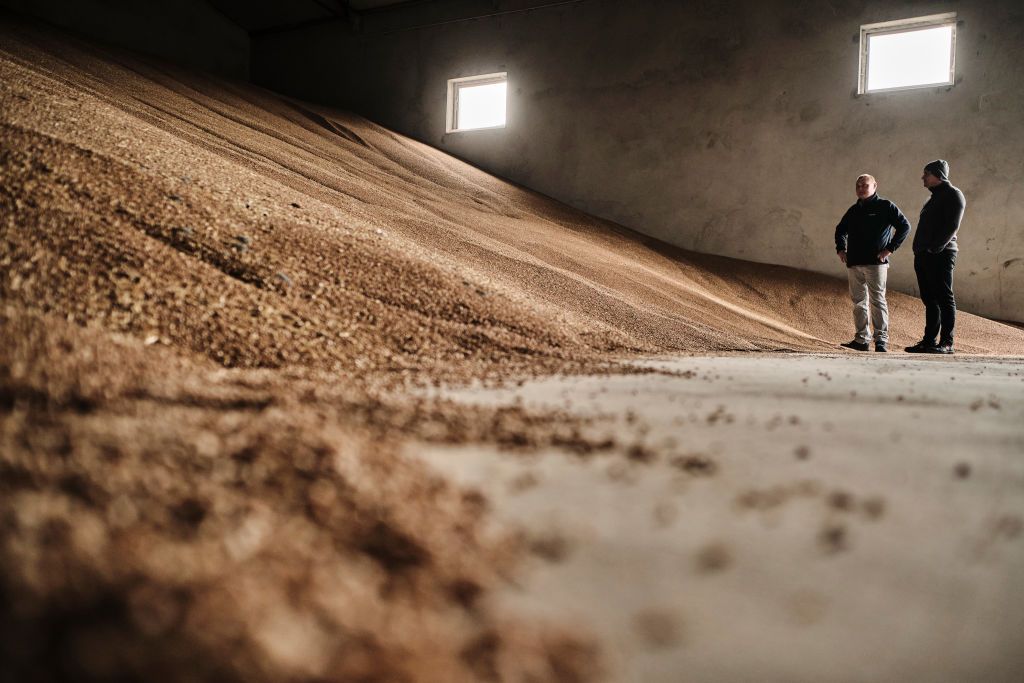Ukraine sends a note to Polish Embassy, EU Representative Office on 'unacceptable' trade restrictions of Ukrainian grain
Ukraine's Foreign Ministry on April 29 lashed out at Poland and the EU on what it called a "categorically unacceptable" situation concerning the trade restrictions of Ukrainian grain, urging its allies to "find a balanced solution."
Spokesman Oleh Nikolenko said in a Facebook post that the Foreign Ministry handed a note to the Polish Embassy and the EU Representative Office in Ukraine about "the categorically unacceptable situation regarding trade restrictions on the import of agricultural products of Ukraine."
Nikolenko's statement comes a few weeks after transit EU nations, such as Poland, Hungary, Bulgaria, Slovakia, and Romania have moved to suspend the import of Ukrainian grain and other products, citing their need to protect their domestic markets.
During months of Russia's Black Sea blockade in the early stage of the war in Ukraine, these transit countries played a crucial role in enabling Ukraine to export its agricultural commodities even though its key trade route was off-limits.
And even after a landmark grain deal brokered by the United Nations and Turkey paved the way for Ukraine to export its agricultural commodities from three Black Sea ports, the amount is limited, which means that Ukraine still needs to rely on its land transfer routes.
Transit countries have brought up the issue that the cheap Ukrainian grain also flowed into their local markets, lowering the market prices and making the business harder for their farmers.
On April 28, after nearly two weeks of negotiations, European Trade Commissioner Valdis Dombrovskis announced that five EU countries finally "reached a political agreement" with the European Commission on Ukrainian grain imports to the bloc.
The five EU countries will receive 100 million euros in support package to compensate farmers, and the agreement included "safeguard measures" for wheat, sunflower seeds, maize, and rapeseed, according to Dombrovskis. He did not disclose more details.
President Volodymyr Zelensky on April 28 said he spoke with Charles Michel, president of the European Council, regarding the ban, calling it "a gross violation of the Association Agreement and the founding treaties of the EU."
"This gives the Kremlin dangerous hope, the hope that in our common European home someone's wrong decisions can prevail over common interests," Zelensky said in his evening address on April 28.











